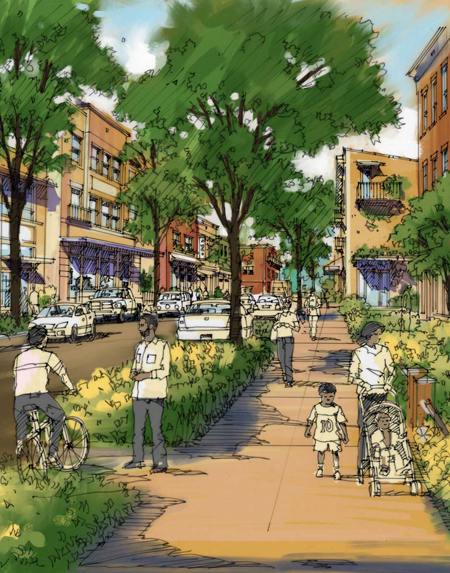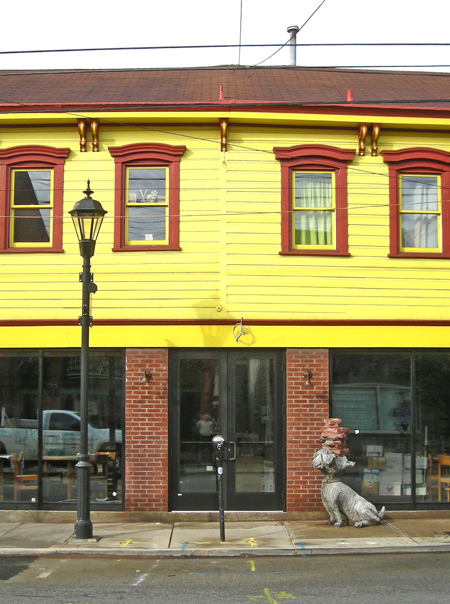Building Community Resilience from the Ground Up

To boost resilience in vulnerable, under-served communities, we need to “build their adaptive capacity, their ability to work together. We need to focus on the ‘software’ of those communities,” argued architect Christine Mondor in a session at the 2016 GreenBuild in Los Angeles. Communities hard hit by population loss, declining incomes, environmental degradation, and widespread health problems in Pittsburgh, Pennsylvania, were the focus of discussion.
Fred Brown, with the Kingsley Association, described how Larimer and Homewood, two predominately African American and poor communities in Pittsburgh, have seen a nearly 80 percent population decline over the past few decades. There, the poverty rate has hit nearly 40 percent. Asthma rates are twice the national average. And 20 percent of the school population is homeless.
Using the 2Gen model created at Harvard University, Brown’s group and others are trying to re-weave a support network for vulnerable youth. “We invest in parents to invest in kids.” See a brief video that explains the theory:
He helps under-performing schools become hubs for these efforts, and catalysts for community renewal, providing life-long learning opportunities for parents and help in meeting “basic needs.”
His broader goal is to release the “collective genius” of these communities, empowering them to forge their own path to resilience and sustainability. Larimer recently won a $30 million Choice Neighborhood grant from the U.S. Department of Housing and Urban Development (HUD) to create a comprehensive sustainability plan, install bioswales for stormwater management, distribute cisterns for grey water reuse, and tap renewable energy. Brown is helping these communities build their “Green IQ,” so they can better take advantage of government assistance.
Brian Wolovich, a middle school teacher and city council member in Millvale — another poor community in Pittsburgh with lung cancer rates double the national average — described how he led a bottom-up community effort, with multiple stakeholder groups, to boost community sustainability and resilience.
Working with Mondor’s firm Evolve, the community forged an ecodistrict plan that resulted in residences replacing inefficient light bulbs with LEDs and adding solar panels to save on energy use, and installing rain barrels and gardens to reduce flooding. The community raised funds to build a new library, which is covered in solar panels, and came together to create a bioswale along the Allegheny River, eliminating flooding for multiple families. (Imagine Millvale documents many of these plans and projects, and Launch Millvale focuses on their local food production).

Mondor explained how she helps communities like Millvale “think like a district.” She argued that “projects alone don’t make change; you need governance.” Governance can be more effective if existing “tribes” are tapped and “leveraged to reach scale.” Communities will succeed if they can make decisions well together, cultivate “authentic” leadership, share knowledge, and create a legal governance structure.
Another way to scale up these valuable community-led projects is to bring in external investment in a responsible way. Eve Picker, who has launched Small Change, one of the first crowd-funding websites for real estate development projects, is looking to help under-served communities like Larimer and Millvale. She thinks these places are “ripe for development because banks don’t want to be in under-served communities; they want to be in booming ones.” Picker finances unique restoration projects others developers have missed along with “tiny houses,” which have proven popular with everyone except banks. She said some $3.5 billion has been raised from crowd-funding sites to date, but there is a $480 billion opportunity.
Read Original Article – https://dirt.asla.org/2016/11/09/building-community-resilience-from-the-ground-up/

